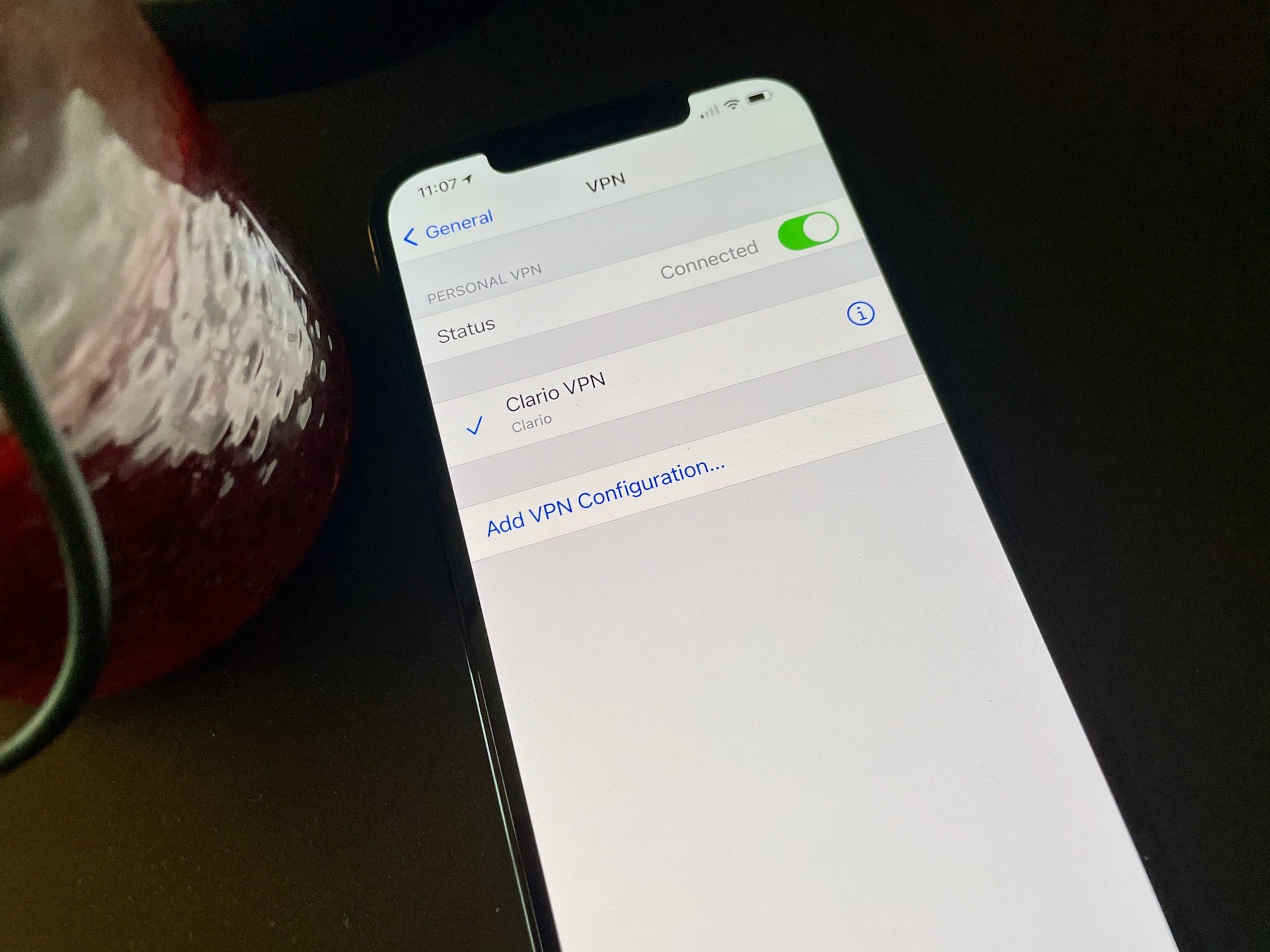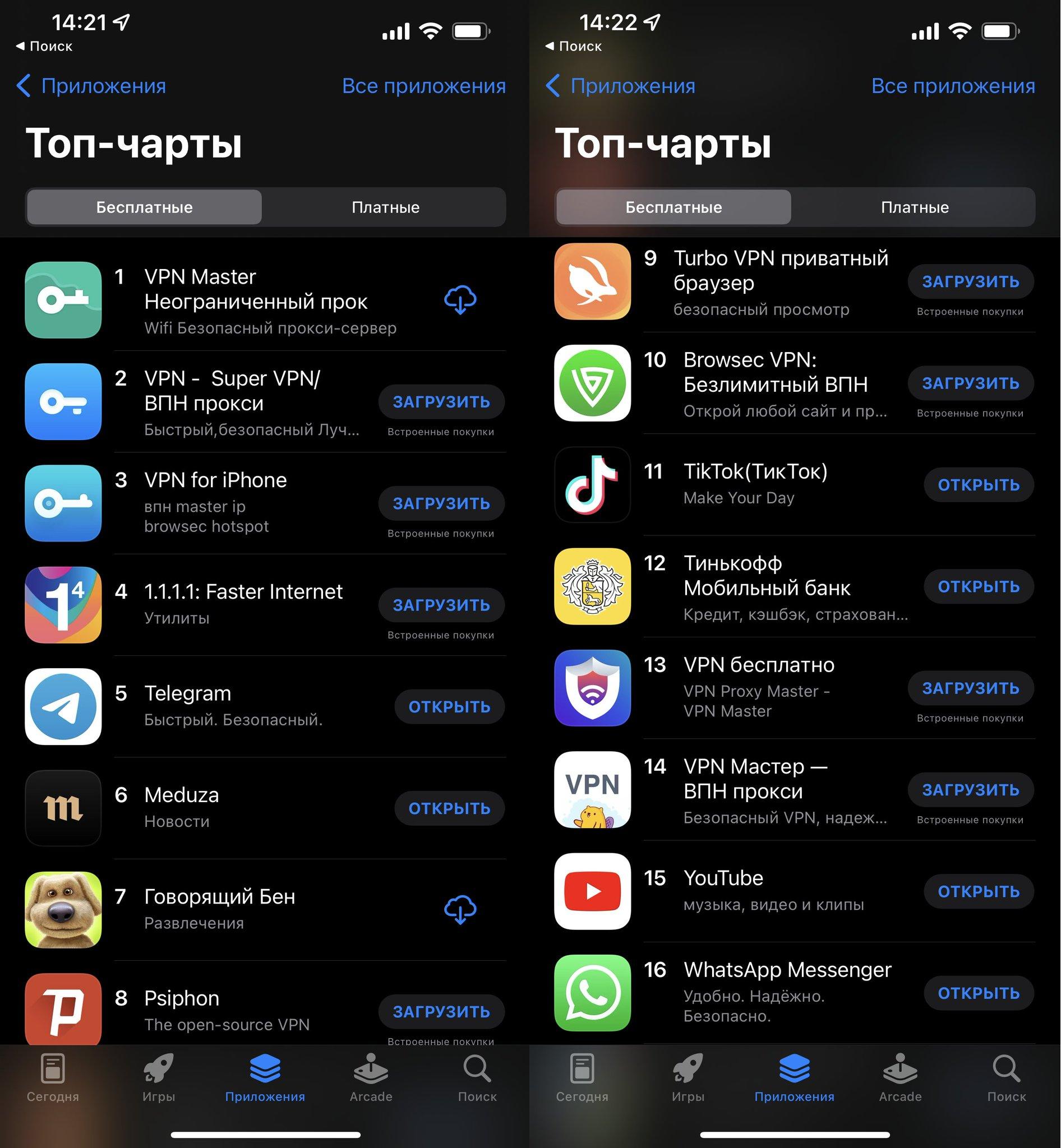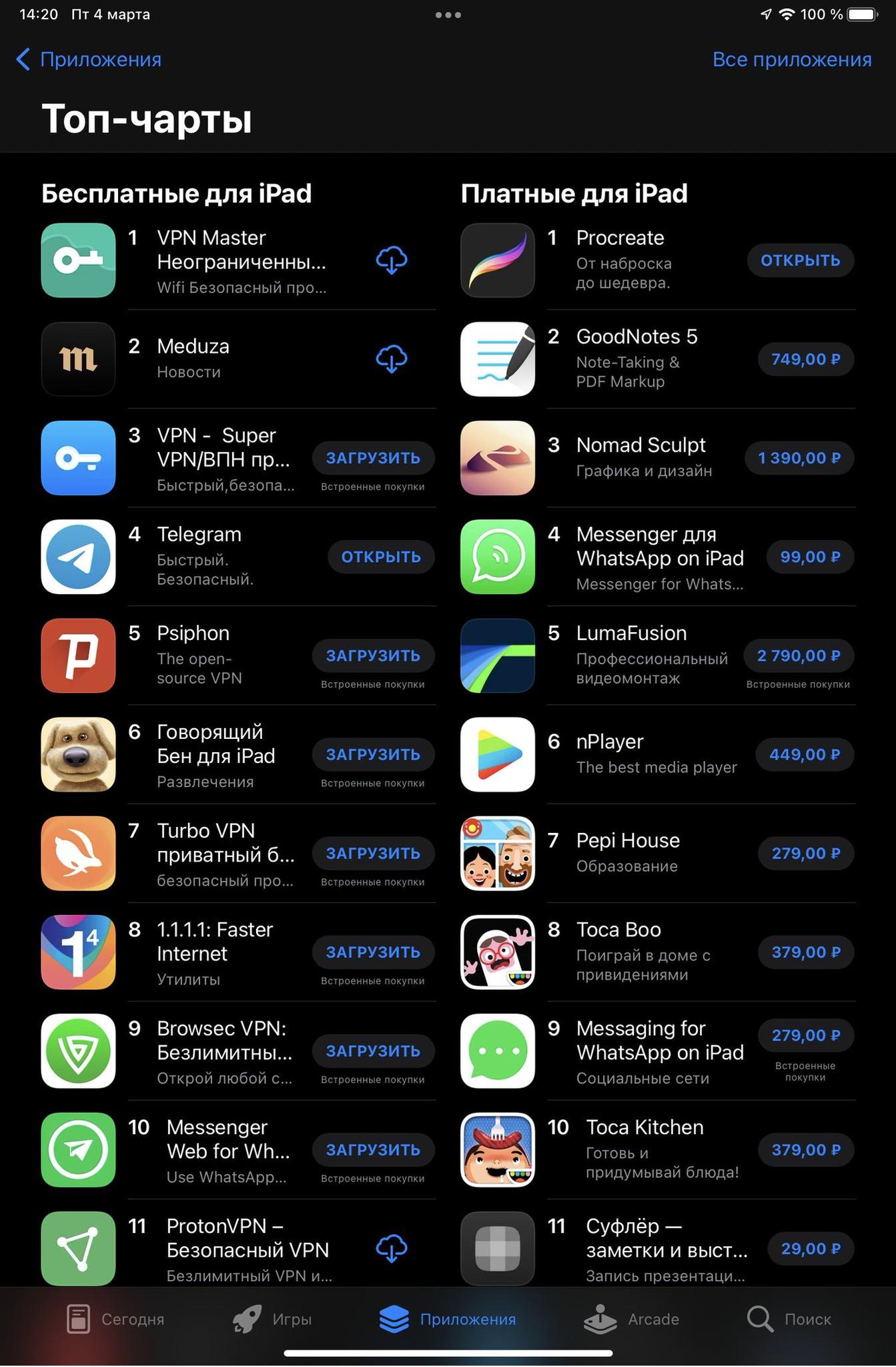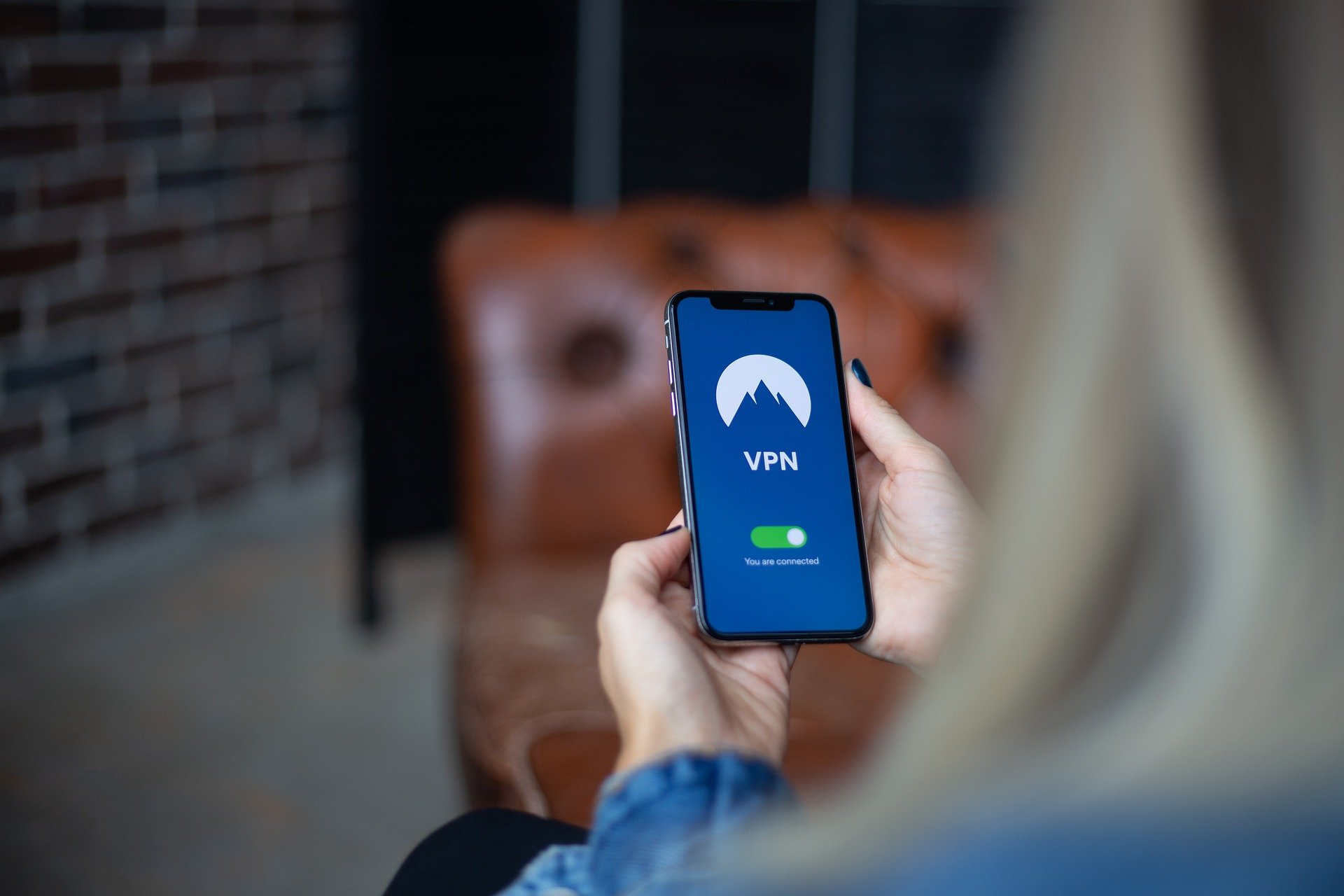How Russians are flocking to VPN apps as state censorship tightens

iMore offers spot-on advice and guidance from our team of experts, with decades of Apple device experience to lean on. Learn more with iMore!
You are now subscribed
Your newsletter sign-up was successful
What you need to know
- App downloads for VPN services in Russia have increased massively in recent days.
- Sensor Tower data provided to iMore says downloads of Russia's top five VPN apps have increased by nearly 2,700% in the last week.
- Multiple mainstream VPN providers say they have witnessed an increase in traffic and downloads, and citizens who are concerned about the war and tightening censorship.
As Russia's invasion of Ukraine continues and intensifies, hundreds of thousands of Russian iPhone users are turning to VPN software in the face of unprecedented censorship in the country, according to multiple mainstream VPN providers and app data platform Sensor Tower.
As Ukraine continues to offer stiff resistance in the face of Russian aggression, an intensifying war of information is being fought all around the world as the country seeks to shield its citizens from Western media coverage and companies seek to distance themselves from the conflict.
Now, mainstream VPN providers confirm that they have seen a big uptick in traffic and downloads from Russia, with customers citing specific concerns about the war and access to information in the country since the invasion began.
Preliminary estimates from Sensor Tower provided to iMore indicate that the top five VPN apps on the App Store in Russia have seen their total downloads increase by a staggering 2691% week-on-week from February 25 through March 3.

The top five apps in Russia, which were downloaded a total of 43,000 times between Feb 18 - 24, were by contrast downloaded around 1.2 million times in the week that followed. The top five apps and their increased download performance were as follows:
- VPN Proxy Master – Super VPN (ALL Connected) - 490,000 - +2622% from 18,000
- VPN – Super Unlimited Proxy - (Mobile Jump) - 292,000 - +2555% from 11,000
- VPN – Super Unlimited proxy vpn - (VPN Proxy Secure Express) - 183,000 - +8218% from 2,200
- Psiphon Pro – The Internet Freedom VPN - (Psiphon) - 118,000 - +2214% from 5,100
- Turbo VPN – Secure VPN Proxy - (Innovative Connecting) - 95,000 - +1362% from 6,500
() Denotes publisher

In the past few days Russia has completely banned access to social media platforms Facebook and Twitter, and on Friday passed a law in the country criminalizing anyone who referred to the conflict in Ukraine as a war. The move led to the BBC suspending the work of all its journalists inside the country while it assessed the implications of the measure. Russia's communications watchdog continues to block access to multiple media outlets, and the situation was complicated further Friday when ISP Cogent Communications announced it was terminating its services in Russia. Cogent carries 25% of all the globe's internet traffic.
While less prominent in Russia, many of the best iPhone and iPad VPN vendors you might be more familiar with are also seeing a big uptick in interest. Ukraine's own ClearVPN, developed by MacPaw, says that since February 24 it has received over 100,000 installs, in part thanks to its offer of a free one-year subscription to all users and its decision to make the app free in Ukraine. MacPaw told us it had seen its daily active users increase by 15 times, with around 5% of its new users coming from either Russia or Belarus, it says the daily average number of active users has quadrupled in those countries in the space of a week, despite the company not running any marketing in either. On March 1, MacPaw took the decision to remove ClearVPN from Russia and Belarus to prevent it from being used as a tool in the cyberwar against Ukraine.
"We are seeing some trends that indicate a growing interest in VPNs from Russia," ExpressVPN Vice President Harold Li said. "In the past week, we saw traffic to our website from Russia increase by around 330% week over week," Li said the company does not provide specific user counts or regional download figures.
Similarly, FastestVPN told us that it had seen visitor traffic in Russia increase by 115%, with downloads up 40%. Like ClearVPN, FastestVPN is offering the people of Ukraine and others affected by censorship three months of its services for free and has targeted the region with email campaigns.
One user wrote; "War started, and I'm worrying the government may start to restrict access to the internet even more than ever before."
"We've seen a significant increase in VPN sales coming from Russia," Surfshark's Gabriele Racaityte said, reaffirming the experience of other providers. "Such a rapid surge means that people living in Russia are actively looking for ways to avoid government surveillance and censorship, be it accessing blocked websites or social media such as Twitter, Facebook, or YouTube." Surfshark explained to us that its users receive a post-purchase survey after buying its services, and said, "we keep seeing a fair share of people in Russia saying that they purchased VPNs because of the war and increasing censorship." One user wrote; "War started, and I'm worrying the government may start to restrict access to the internet even more than ever before." Surfshark has also rolled out a new fake news alert browser extension for users on Chrome and Firefox.

Even VPN providers are not immune from government measures in the country, with some choosing not to operate servers in Russia as a result of government requirements that the state be given access to servers located in Russia. NordVPN reiterated to us its 2019 stance that it did not operate servers in the country and did not comply with the terms as set out by Russia's media watchdog, Roskomnadzor. At the time NordVPN said the immediate goal of Russia was to prevent users viewing content blacklisted by the government, but that compliance would also mean obeying other broader internet control laws.
"Such spikes in demand for VPNs are not unusual," the company told us. "Whenever a government announces an increase in surveillance, internet restrictions, or other types of constraints, people turn to privacy tools." Nord says it has seen small growth in the number of visits to its website from people in Russia, with spikes akin to other different regions, for example in Hong Kong during protests in 2020. Nord also told us that it had chosen not to block access from Russia to its service, mainly because most of the internet is already blocked in Russia, preventing regular people from accessing news.
While Russia is tightening its grip on the flow of information into the country, many companies including Apple are pushing back in the other direction. Earlier this week the company announced it was banning sales of its products in the country and de-platforming Russian state-sponsored news outlets Sputnik and Russia Today. Many other companies, including tech giants Microsoft and Samsung, have followed suit with similar measures. At the weekend, payment platform PayPal announced it was suspending services in the country, joining the ranks of Google and many others in ceasing digital operations in the country.
As with the geopolitical situation and the story on the ground, the war on information during the conflict remains extremely fluid and volatile, with measures and countermeasures emerging on a daily and sometimes hourly basis.
We test and review VPN services in the context of legal recreational uses. For example:
1. Accessing a service from another country (subject to the terms and conditions of that service).
2. Protecting your online security and strengthening your online privacy when abroad.
We do not support or condone the illegal or malicious use of VPN services. Consuming pirated content that is paid-for is neither endorsed nor approved by Future Publishing.
iMore offers spot-on advice and guidance from our team of experts, with decades of Apple device experience to lean on. Learn more with iMore!

Stephen Warwick has written about Apple for five years at iMore and previously elsewhere. He covers all of iMore's latest breaking news regarding all of Apple's products and services, both hardware and software. Stephen has interviewed industry experts in a range of fields including finance, litigation, security, and more. He also specializes in curating and reviewing audio hardware and has experience beyond journalism in sound engineering, production, and design.
Before becoming a writer Stephen studied Ancient History at University and also worked at Apple for more than two years. Stephen is also a host on the iMore show, a weekly podcast recorded live that discusses the latest in breaking Apple news, as well as featuring fun trivia about all things Apple. Follow him on Twitter @stephenwarwick9
